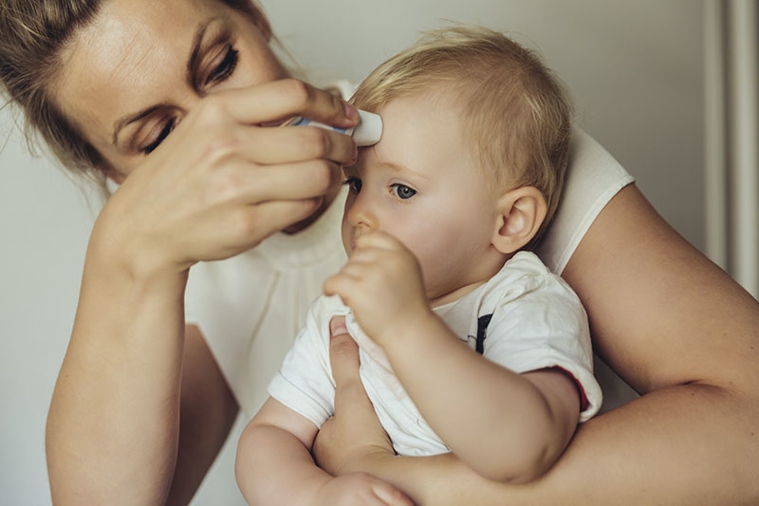What parents need to know about RSV
Nov 9, 2022

If you’re a parent of an infant or a young child, you’ve probably seen the stories in the news and on social media: RSV is spreading rapidly, sending children to the hospital and threatening lives.
“Don’t panic,” says Nedaa Issa, MD, an Adventist Health pediatrician, of the advice she most often gives worried parents. “In my office, we’re often reassuring parents that RSV can just be a simple cold, especially if your child is healthy.”
So before you rush your child to the pediatrician at the first sign of a sniffle, take a moment to learn more about this common — and most often not life-threatening — condition.
What is RSV?
Respiratory syncytial virus (RSV) is a respiratory virus that infects the lungs and breathing passages. It affects both adults and children.
According to the Centers for Disease Control and Prevention (CDC), nearly all children get an RSV infection by the time they are two years old. While most often RSV causes a mild, cold-like illness, it can also cause severe illnesses such as bronchiolitis (inflammation of the small airways in the lung) and pneumonia (infection of the lungs).
“Adults may have RSV and they may not show symptoms or just have mild symptoms,” describes Dr. Issa. “But children, especially younger infants or premature infants, may have severe symptoms.” Premature infants and anyone with chronic lung or heart problems are especially at-risk for a severe or life-threatening infection that may require a hospital stay.
How do babies contract it?
Respiratory syncytial virus enters the body through the eyes, nose or mouth. It spreads easily through the air on infected respiratory droplets — think coughs and sneezes. “The virus also passes to others through direct contact, which is why it’s important to limit kisses from adoring family and friends who may be carrying the infection,” Dr. Issa says.
What symptoms should I look for?
“Infants who get an RSV infection almost always show symptoms,” Dr. Issa assures. This is different from adults who can sometimes get RSV infections and not have symptoms. RSV may not be severe when it first starts. However, it can become more severe a few days into the illness. Early symptoms of RSV may include:
- Coughing
- Decrease in appetite
- Fever
- Runny nose
- Sneezing
- Wheezing
What should I do if I think my child has it?
Help your child to feel better by addressing some of the symptoms they may have, such as:
- Giving non-aspirin fever-reducers such as acetaminophen.
- Providing fluids in small amounts frequently throughout the day.
- Removing sticky nasal fluids with a bulb syringe using saline drops.
- Using a cool-mist vaporizer to keep the air moist and make breathing easier.
If your child has difficulty breathing, a visit to the doctor is important. If your child is experiencing severe symptoms, call 9-1-1.
Should I stay home from work if my child has RSV?
While it’s important to protect those around you if you have cold or flu-like symptoms, Dr. Issa says that there’s generally no worry if you’re feeling well. “As long as parents and siblings are not having symptoms and have good hand hygiene, they can generally go to work and school,” she says.
How can I prevent my child from getting it?
Wash your hands often with soap and water for at least 20 seconds, and help young children do the same. Proper hand hygiene can help protect you from getting RSV infection and prevent the spread of infection to others when you are sick. RSV can spread when an infected person coughs or sneezes.
How contagious is RSV?
RSV is very contagious, especially during the week or so that someone is showing symptoms. “Some babies and older adults can remain contagious for up to four weeks,” says Dr. Issa. RSV is spread through contact with someone who is infected.
Is there an RSV vaccine? And does getting a flu shot help?
The vaccine for RSV is generally limited to very premature infants and children with specific lung or heart conditions. But since RSV spikes in the same timeframe as the flu, it’s smart to have your children vaccinated against influenza. “When a child’s immune system is already fighting the flu, it becomes easier to catch another virus like RSV,” Dr. Issa explains. Flu shots can be given to children age six months and older.
If you or your child hasn’t yet received a flu shot, schedule an appointment with your doctor. Need a pediatrician or a primary care provider? Find a physician near you.


